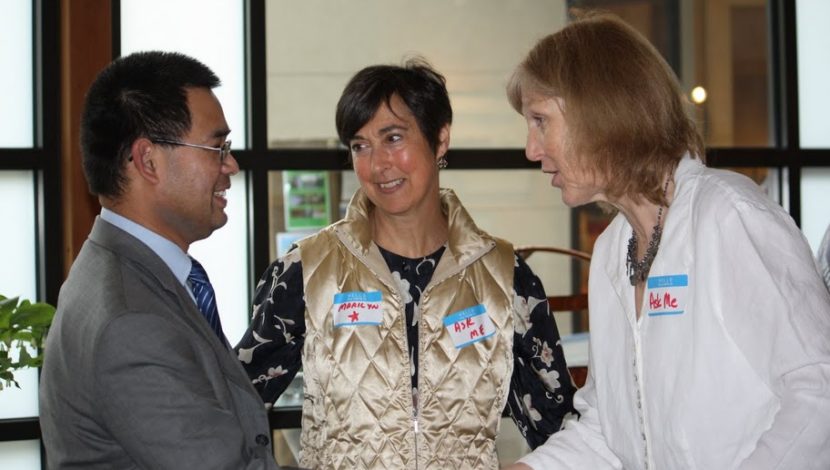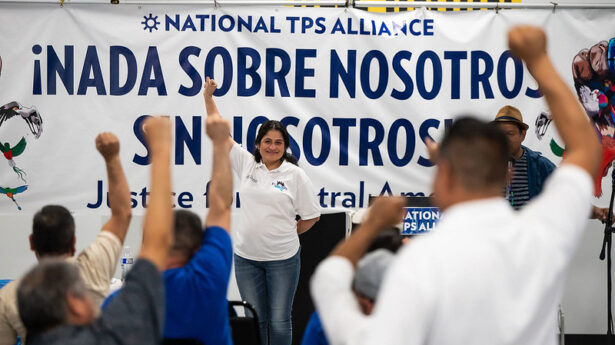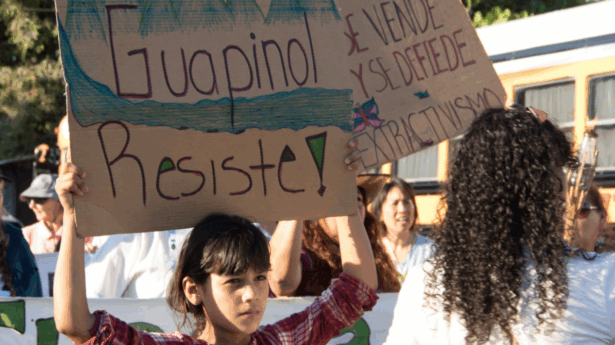The Unitarian Universalist Service Committee advances human rights through grassroots collaborations.
In Their Own Words: Reflecting on Building Bridges

May 2, 2014
In 2011, UUSC’s Civil Liberties Program worked with the East Shore Unitarian Church in Bellevue, Wash., to put on a Building Bridges workshop designed to bring together members of local UU congregations, Muslims, and others dedicated to defending civil liberties. Participants learned strategies and developed relationships that supported a range of future work, including successfully pressuring the King County Council to pass an ordinance in 2013 limiting the ability of local police to enforce federal immigration detention requests when there is no threat to public safety.
Below are reflections from two members of the Building Bridges committee at East Shore Unitarian Church: Lynn Roesch, chair of congregational Building Bridges Committee and UUSC regional volunteer coordinator; and Marilyn Mayers, UUSC local representative and regional activist.
On the initial Building Bridges workshop
Marilyn Mayers: “Building Bridges helped play a critical role in getting the ball rolling and making some connections. It brought together people who helped us establish alliances, both formal and informal. It brought UUs and local Muslims together, and Shahid Buttar [of the Bill of Rights Defense Committee, a UUSC partner,] urged us to organize on a local level on immigration and civil liberties issues.”
Lynn Roesch: “As the East Shore UUSC local representative at the time, I became chair of the Building Bridges committee, which involved various organizations. We reached out to University Unitarian in Seattle, Edmonds Unitarian Universalist, and other UU congregations as well as the Muslim Association of Puget Sound (MAPS) and the Council on American-Islamic Relations (CAIR). The workshop featured several speakers, including James Yee, who shared his Guantanamo Bay work. It took on a life of its own — 125–135 people were at this workshop!”
On how things grew
Mayers: “In further Building Bridges events over the next several years, we found a compelling common narrative: older, white UUs; members of the Hispanic and black communities; and local Muslims were all concerned about civil liberties violations. Since then, UUs have been instrumental in supporting the local ordinance at King County Council meetings, reviving the Northwest Detention Center community visitation program, and building deeper community connections.”
Roesch: “Participants of the Building Bridges workshop and committee have maintained a strong relationship with the MAPS women, have had additional workshops on racial profiling, have gotten further involved in work around the local detention center, and more.”
On why this work is important
Mayers: “[The new local ordinance] is a progressive move that shows that local organizing can challenge government to act more justly. It is another model that challenges the federal government but on a local level. It shows that you can do something that affects the lives of people, and it rallies people to take it to another level. Plus it creates and solidifies connections with other progressive groups — it’s civic encouragement.”
Roesch: “Our Building Bridges work has been very much based on using UUSC’s partnership model; I believe very strongly in collaborative, democratic work, and that’s one of the reasons that I am involved. One of the keys of Building Bridges is that we connected directly with the communities that we wanted to work with. We took the time to build the relationships with people, to develop a sense of trust in each other and respect for what each other is doing, to build some dialogue.”
On lessons learned
Mayers: “Organizing will continue. Once you have some of these ties, it’s easier to strategize, to see where you fit into things, to recruit people. The success helps you move onto the next step. We know that we need to reach out to other faith groups and alliances.”
Roesch: “You have to lay the groundwork. It takes time, as with any social justice work, to develop a network. We realized that University Unitarian had been long engaged in immigration work — we didn’t have to reinvent the wheel. There was a lot of reciprocity going on. There needs to be a group of people who are really committed to moving the work forward if you want the congregation engaged — and at the same time you need to be willing to shift when people’s lives are in flux, be willing to recruit new people and reengage people. Organic development is very strong.”
On how it feels to be involved
Mayers: “It takes a lot of effort for what can seem like a relatively small gain, but I know these things add up. I really appreciate having the chance to meet all of these different people concerned with issues related to civil liberties. It’s helped me see that there are people willing to take action to the next step. It’s heartening to see people at vigils, at actions at the detention center. I’m also really heartened when I see ministers taking on an advocacy role. It’s been satisfying to understand the issues at a deeper level, and I’ve seen how federal policy affects families at the local level. Issues related to immigration are not going away, and we need to be more aware of who our neighbors are and be able to reach out and support them.”
Roesch: “It was fabulous. I met a lot of people and was able to share UUSC’s work. I am total believer in the rights of humans to have equality and civil liberties, and justice is a guiding principle in my life. Being able to pursue that has been a great honor for me. It was very energizing — to see people roll up their sleeves and work together and try to make a stronger community. Even though there’s a lot of negative in the world and we’re not necessarily going to change the world, we can make a little difference in people’s lives and make the community a little bit closer and a little bit stronger and a little bit safer.”
On moving into the future
Mayers: “We want to continue to work with other congregations and groups to bring these issues to the state level, deepen collaboration with local groups such as Not One More Deportation, integrate youth in civic actions around immigration, and investigate ways we can be involved in supporting state-level DREAM Act legislation.”
Roesch: “We’ll continue ongoing work with people involved in immigrants’ rights. We’re exploring future directions for our Building Bridges work, including a possible youth training on civil liberties with UU and Muslim youth. Building Bridges cultivated a respect in the community that keeps the relationship between East Shore, MAPS, University Unitarian, and others going. They know they can turn to us when they need support or calls or people to attend council hearings, because they know that we’ll come through.”

